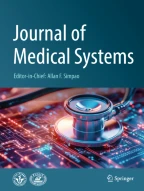Abstract
Radio Frequency Identification (RFID) is a technology which has multidimensional applications to reduce the complexity of today life. Everywhere, like access control, transportation, real-time inventory, asset management and automated payment systems etc., RFID has its enormous use. Recently, this technology is opening its wings in healthcare environments, where potential applications include patient monitoring, object traceability and drug administration systems etc. In this paper, we propose a secure RFID-based protocol for the medical sector. This protocol is based on hash operation with synchronized secret. The protocol is safe against active and passive attacks such as forgery, traceability, replay and de-synchronization attack.
Similar content being viewed by others
References
Auto-ID Center: 860MHz-960MHz Class I radio frequency identification tag radio frequency and logical communication interface specification: Proposed recommendation Version 1.0.0, November. http://www.autoidlabs.org/whitepapers/mit-autoid-tr007.pdf, 2006.
Azevedo, S. G., and Ferreira, J. J., Radio frequency identification: A case study of healthcare organisations. Int. J. Secur. Netw. 5(2):147–55, 2010.
Chatmon, C., Le, T. V., Burmester, M.: Secure anonymous rfid authentication protocols, Technical Report TR-060112 Florida State University. https://webmail.cs.fsu.edu/research/reports/TR-060112.pdf, (2006)
Chen, Y. Y., Huang, D. C., Tsai, M. L., Jan, J. K., A design of tamper resistant prescription rfid access control system. J. Med. Syst. 36(5):2795–2801.
Chien, H. Y., Yang, C. C., Wu, T. C., Lee, C. F., Two rfid-based solutions to enhance inpatient medication safety. J. Med. Syst. 35(3):369–375, 2011.
Dunbar, P.: 300,000 babies stolen from their parents-and sold for adoption: haunting bbc documentary exposes 50-year scandal of baby trafficking by the catholic church in spain., Daily Mail (2011)
Huang, H. H., and Ku, C. Y., A rfid grouping proof protocol for medication safety of inpatient. J. Med. Syst. 33(6):467–474 , 2009.
Kaul, S. D., and Awasthi, A. K., Rfid authentication protocol to enhance patient medication safety. J. Med. Syst. 37(6):1–6, 2013.
Kim, H. S., Enhanced hash-based RFID mutual authentication protocol. Commun. Comput. Inf. Sci. 339(5): 70–77, 2012.
Kim, H. S., RFID mutual authentication protocol based on synchronized secret. Int. J. Secur. Appl. 7(4), 2013.
Lin, L., Yu, N., Wang, T., Zhan, C., Active rfid based infant security system. In: Ma, M. (Ed.), Communication Systems and Information Technology, Lecture Notes in Electrical Engineering. Vol. 100, pp. 203–09.
Ohkubo, M., Suzuki, K., Kinoshita, S.: Cryptographic approach to privacy-friendly tag. Proceedings of RFID Privacy Workshop (2003)
Peris-Lopez, A., Orfila, A., Mitrokotsaand, A., van der Lubbe, J. C. A., A comprehensive rfid solution to enhance inpatient medication safety. Int. J. Med. Inform. 80(1):13–24, 2011.
Sun, P. R., Wang, B. H., Wu, F., A new method to guard inpatient medication safety by the implementation of rfid. J. Med. Syst. 32(4):327–332, 2008.
Tsudik, G.: YATRAP yet another trivial rfid authentication protocol. International Conference on Pervasive Computing and Communications. pp. 640–643 (2006)
Tsudik, G.: Family of dunces: trivial rfid identification and authentication protocols. Symposium on Privacy-Enhancing Technologies. pp. 45–61 (2007)
Weis, S., Sarma, S., Rivest, R., Engels, D.: Security and privacy aspects of low-cost radio frequency indentification systems. Proceedings of the 1st Security in Pervasive Computing, LNCS, pp. 201–212 (2004)
Wyld, D., Preventing the worst case scenario: An analysis of rfid technology and infant protection in hospitals. Internet J. Healthc. Admin 7(1), 2009.
Yen, Y. C., Lo, N. W., Wu, T. C., Two rfid-based solutions for secure inpatient medication administration. J. Med. Syst. 36(5):2769–2778, 2012.
Yu, Y., Houand, T., Chiang, T., Low cost rfid real lightweightbinding proof protocol for medication errors and patient safety. J. Med. Syst. 36(2):823–828.
Cho, J.S., Yeo, S.S., Kim, S.K., Securing against brute-force attack: A hash-based RFID mutual authentication protocol using a secret value Computer Communications, Vol. 34, pp. 391–397, 2011.
Author information
Authors and Affiliations
Corresponding author
Additional information
Conflict of interests
The authors declare that they have no conflict of interest.
This article is part of the Topical Collection Mobile Systems
Rights and permissions
About this article
Cite this article
Srivastava, K., Awasthi, A.K., Kaul, S.D. et al. A Hash Based Mutual RFID Tag Authentication Protocol in Telecare Medicine Information System. J Med Syst 39, 153 (2015). https://doi.org/10.1007/s10916-014-0153-7
Received:
Accepted:
Published:
DOI: https://doi.org/10.1007/s10916-014-0153-7
